
3 minute read
The Grande Dame of Palm Beach Decorators:
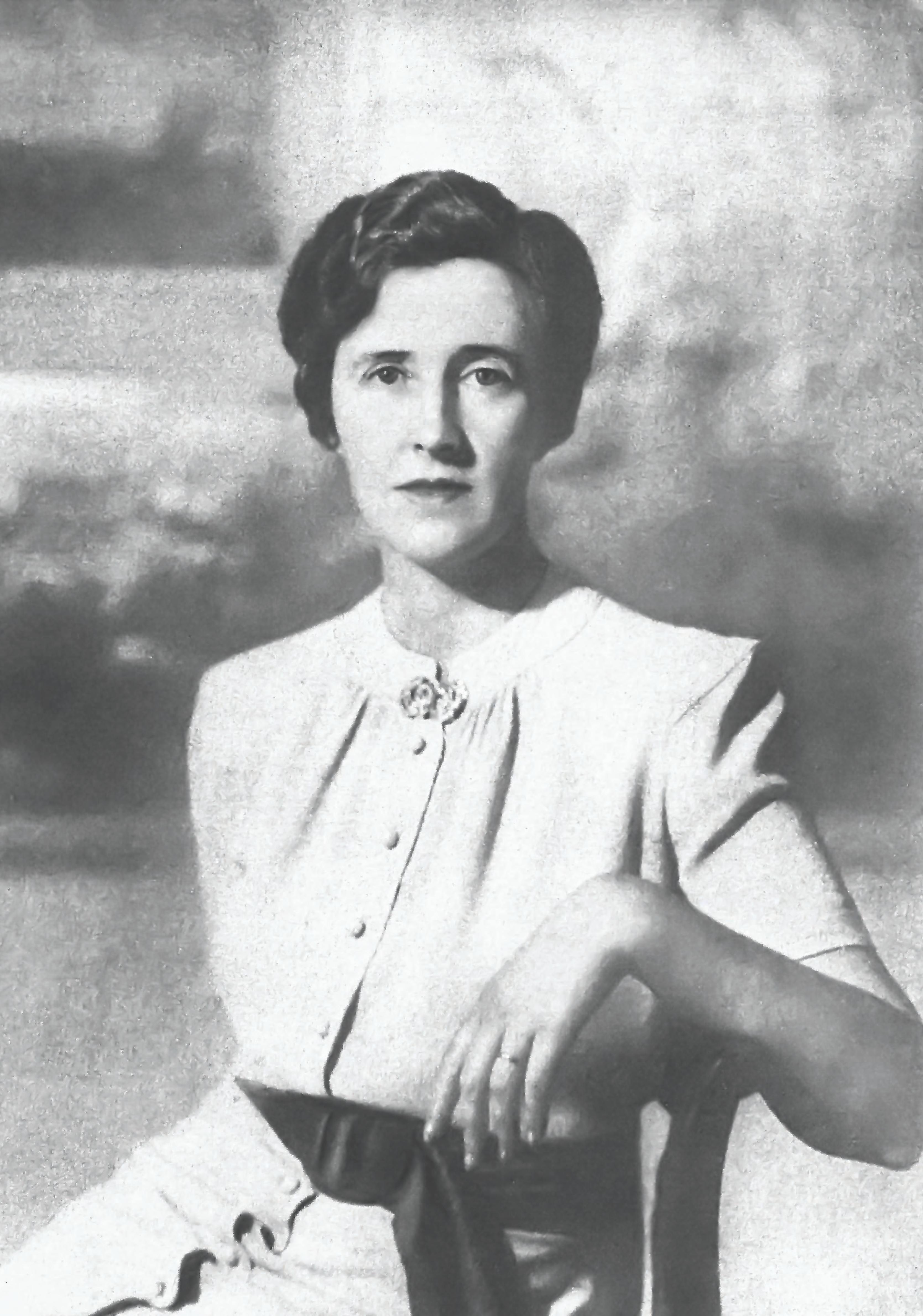
A year before her death in 1987, Polly Jessup was profiled by the New York Times who declared her to be the “Grande Dame of Palm Beach Decorators.” The article by Anne-Marie Shiro highlights Jessup’s sixty years of design among the elite of Palm Beach. Polly created graceful and sophisticated interior décor for society’s biggest names – Dupont, Ford, Whitney, Mellon, Reed, and countless other socialites.
A native New Yorker, Polly Jessup (née Pauline Daniel) moved to Hobe Sound in the 1920s with her husband John Jessup. Despite a lack of formal training, Polly’s eye for color, style, and form made her a nationally renowned interior designer whose designs were integral to the gracious lifestyle for which Palm Beach is known. As her reputation for understanding great quality and design grew in popularity, Polly remained a private person, avoiding publicity when possible. Many of her clients were personal friends with whom she cultivated lasting relationships, so much so that some of her clients were “the third generation in their families to be ‘Jessuped ’.
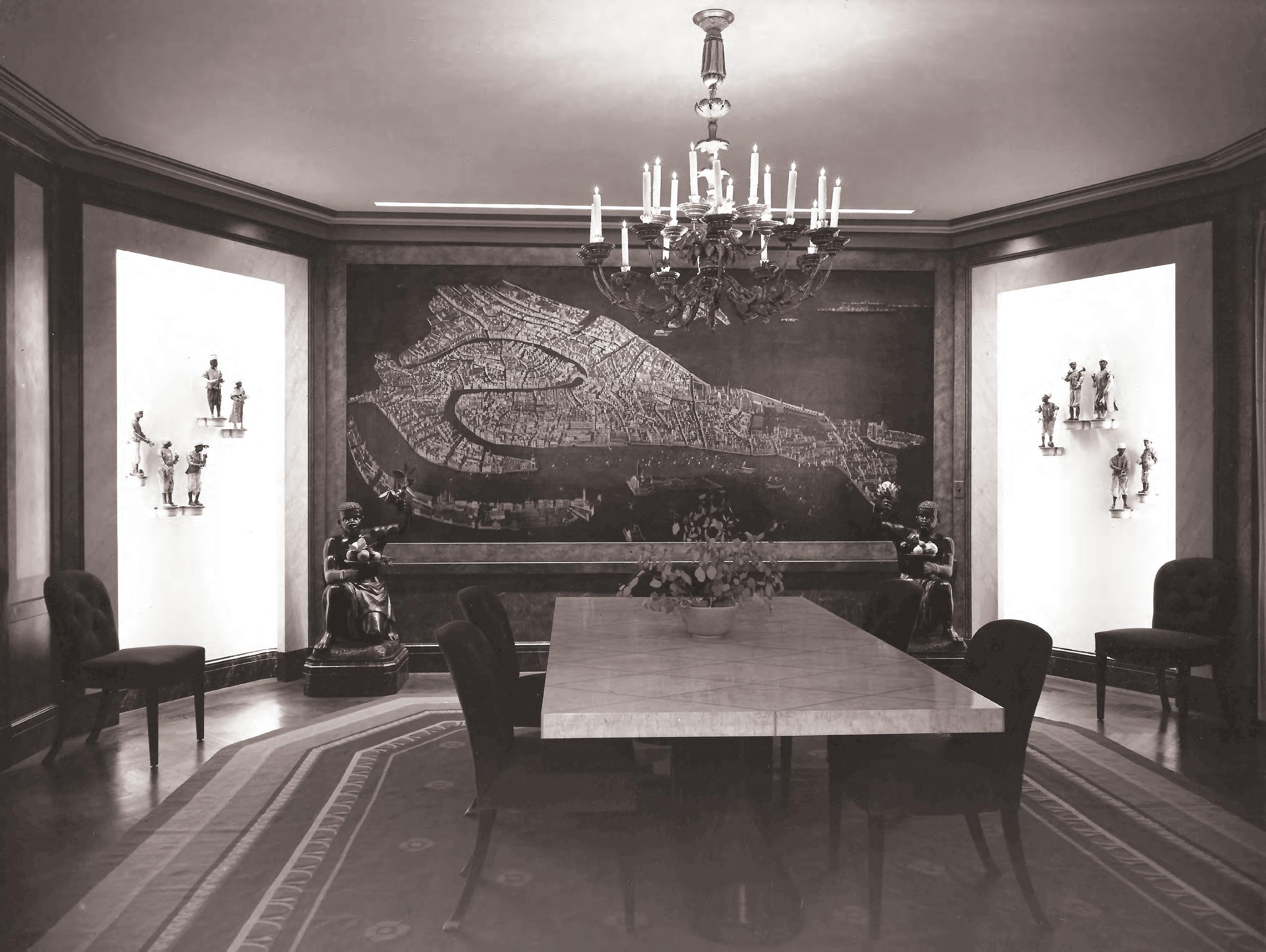
Dining Room of Abegg’s Apartment. Focal point is the map of Venice. Circa 1950s. Image courtesy of the Daniel family collection.
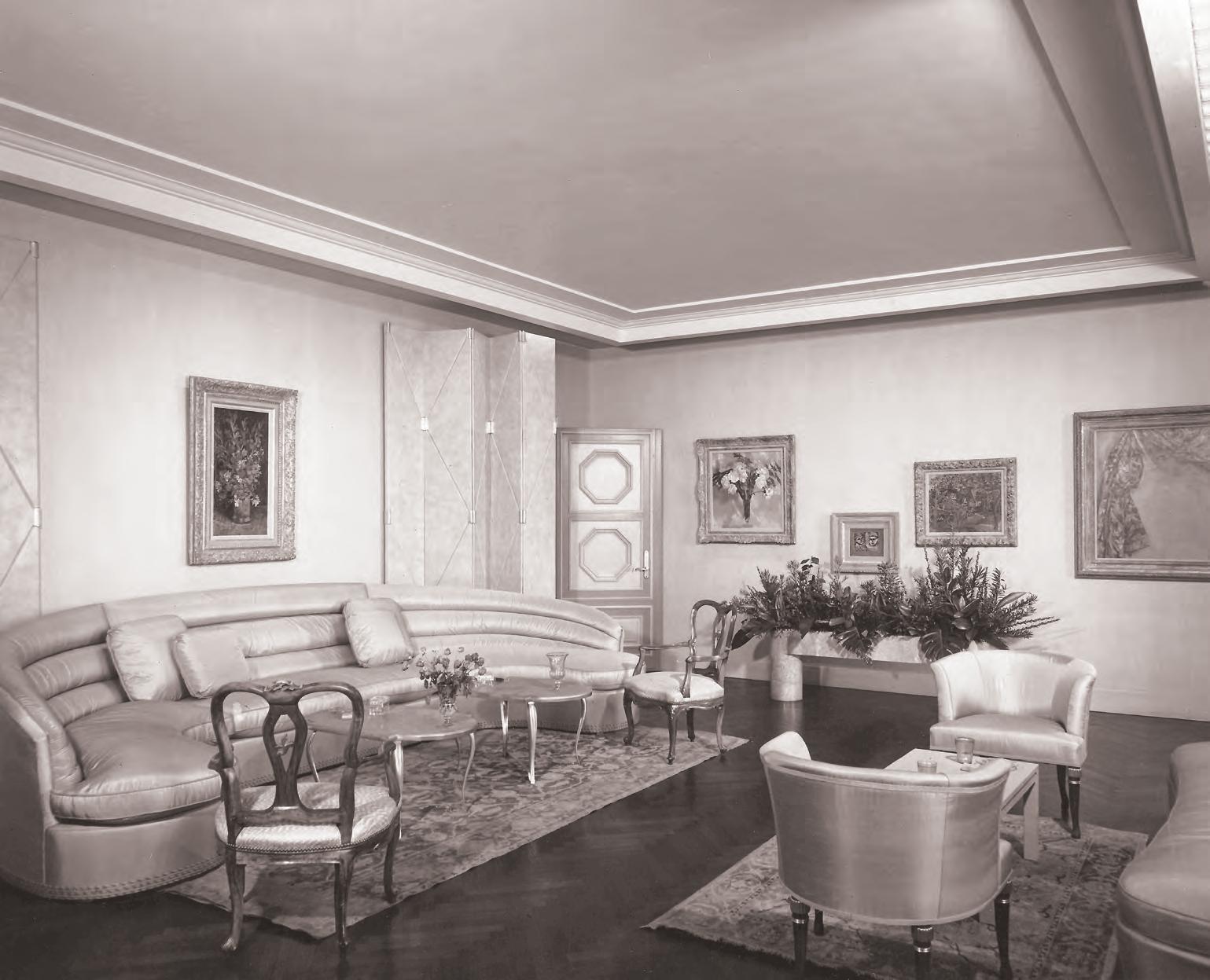
Formal Living Room of the Abegg’s Apartment. Circa 1950s. Image courtesy of the Daniel family collection.
“Polly Jessup’s taste is simply beautiful… her extravagant insistence upon quality, and quality only, has not been equaled, and her success has been without limit, and every bit of it is deserved.”
-Billy Baldwin, 1985

Bedroom overlooking the NYC skyline. Circa 1950s. Image courtesy of the Daniel family collection.
The Beginnings of Jessup, Inc.
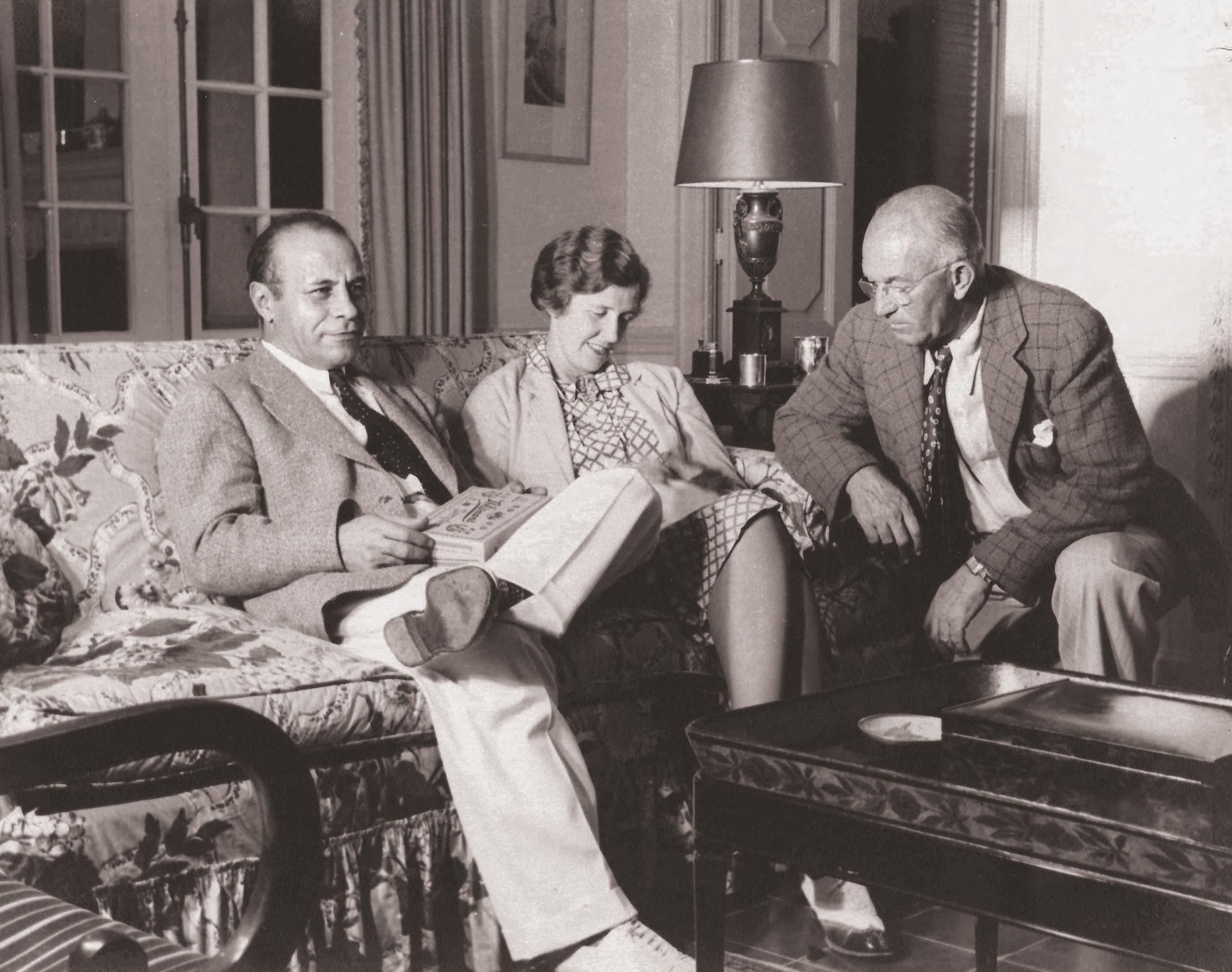
John and Polly Jessup (left). Image courtesy of the Daniel Family Collection.
Polly’s husband, John Jessup, enjoyed woodworking, and together Polly and John put their talents to work making custom furniture for Palm Beach residents. One of their first commissions was to make furniture for the First National Bank of Palm Beach in 1927. Jessup, Inc. opened a showroom in town on Worth Avenue that moved to different storefronts throughout the years, and a warehouse on Georgia Ave in West Palm Beach. Polly had an office in her home at 209 Phipps Plaza, a popular locale for design professionals throughout the years.
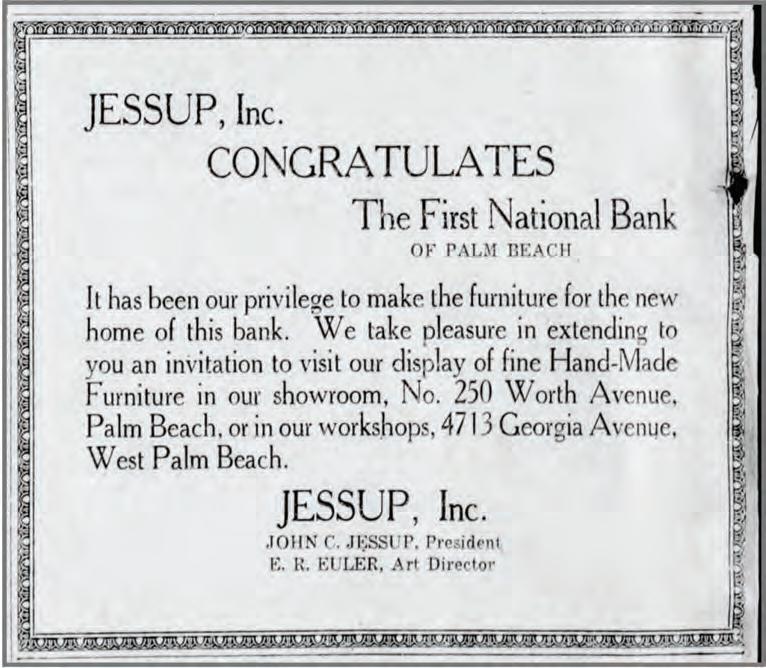
The Palm Beach Post December 1, 1927
Jessup, Inc. gained commissions as the result of a disastrous hurricane, which devastated the area in the summer of 1928. After the storm passed, Polly sent workmen out to salvage priceless pieces of furniture found floating in Lake Worth. Her warehouse in West Palm Beach was one of few buildings standing, and she quickly went to work making furniture for those who were affected by the hurricane.
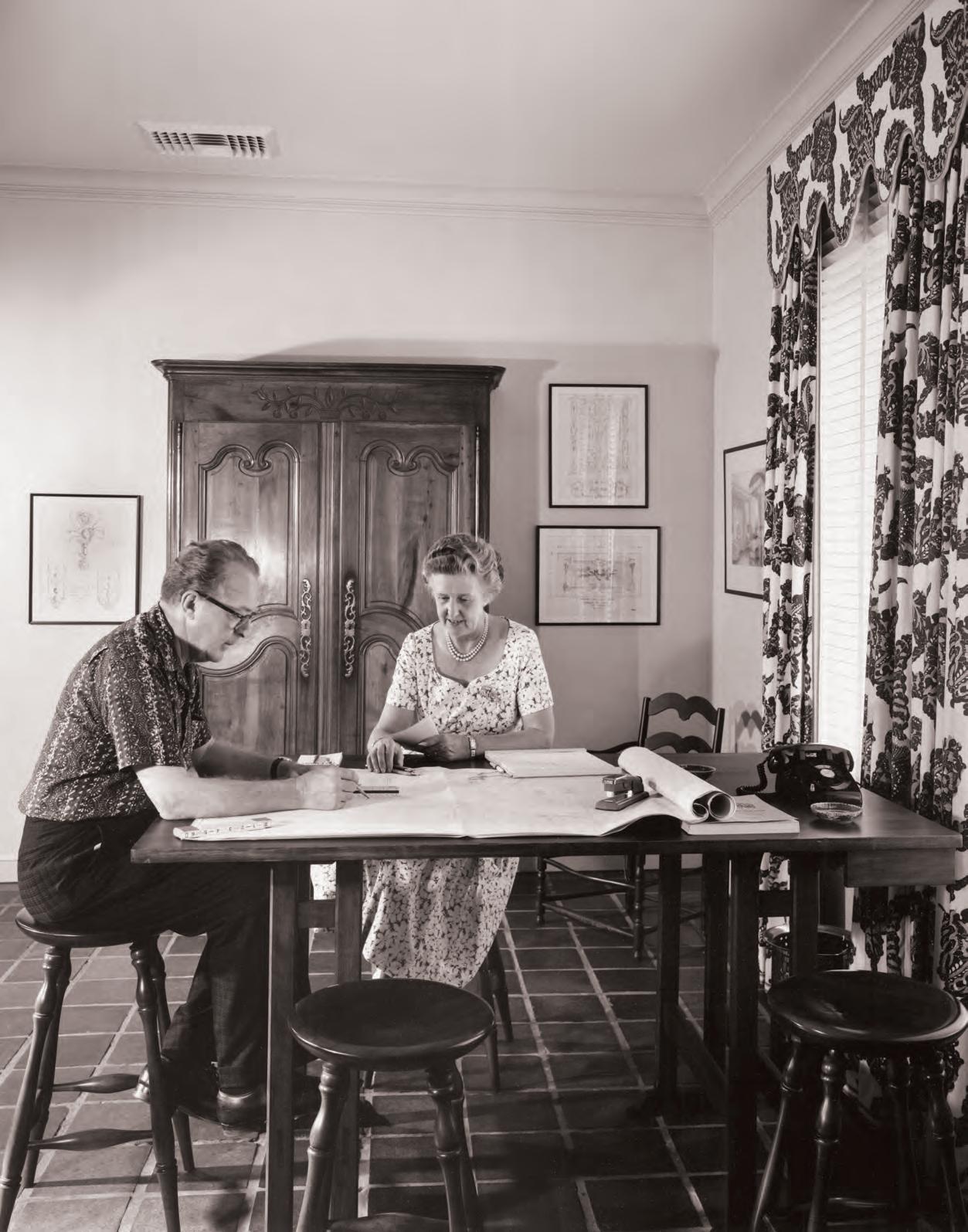
Carl Bretts, a Jessup, Inc. Associate, with Polly Jessup at drafting table at 209 Phipps Plaza. Loaned by the Society of the Four Arts, Palm Beach, FL.
The company grew swiftly, and Polly Jessup’s unique armchairs, lampshades, and curtains became staples in many Palm Beach homes. By Polly’s death in 1988, Jessup Inc. employed over fifty craftsmen, carpenters, and decorators.

Living Room. 209 Phipps Plaza. Loaned by the Society of the Four Arts, Palm Beach, FL.

Office. Polly used her residence at 209 Phipps Plaza to meet clients who did not want to drive to Georgia Ave. 209 Phipps Plaza. Loaned by the Society of the Four Arts, Palm Beach, FL.
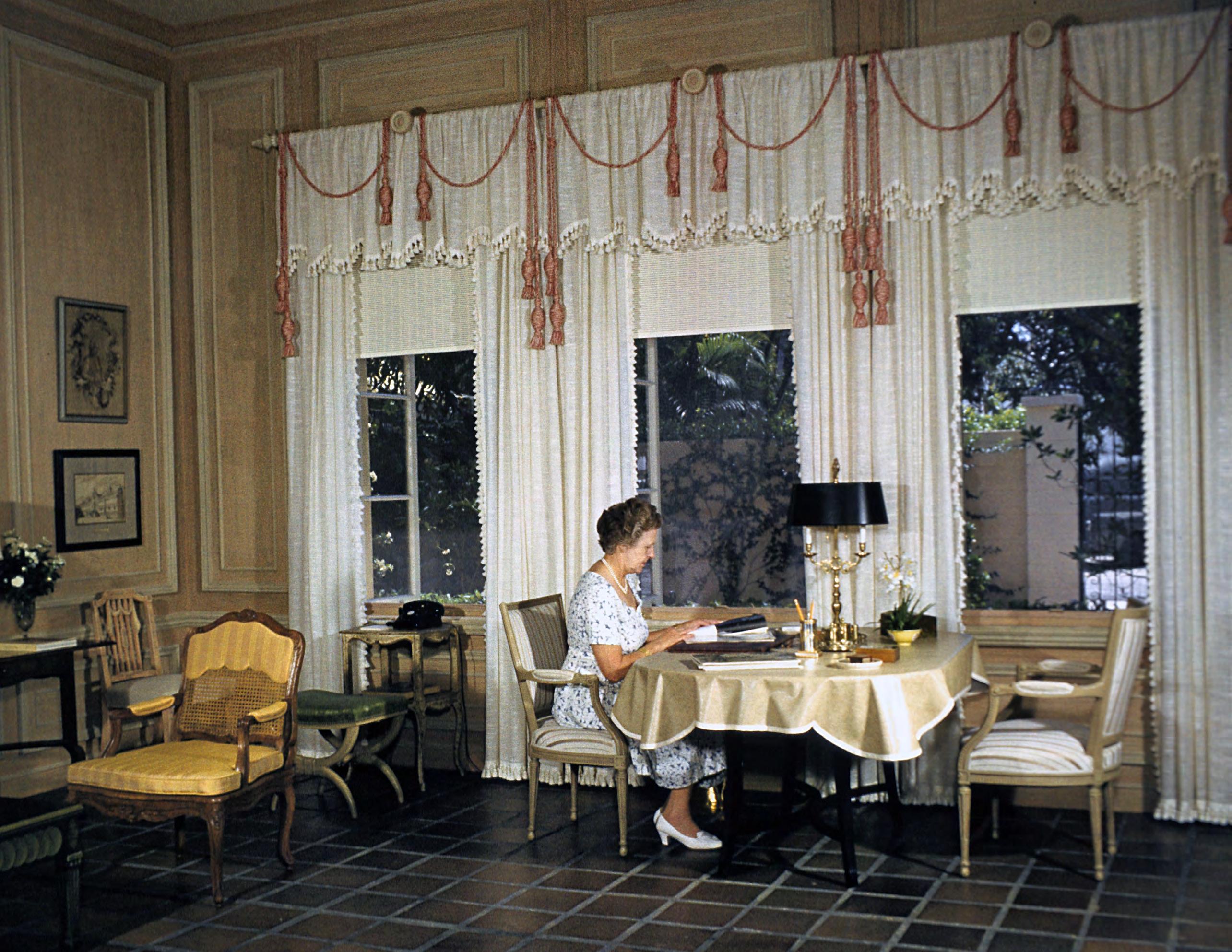
Polly Jessup at her desk at 209 Phipps Plaza. Image Courtesy of the Daniel Family Collection.
– Billy Baldwin

Study for Bill’s Room by Glen Boyles for Jessup, Inc. Residence of Mr. and Mrs. Clay Ford, 100 Lake Shore Drive, Grosse Point, MI. Watercolor, circa 1963. Loaned by the Society of the Four Arts, Palm Beach, FL.
– Jane Volk

Study for Dining Room by Glen Boyles for Jessup, Inc. Watercolor. Loaned by the Society of the Four Arts, Palm Beach, FL.
–Ron Daniel

Study for Bill’s Room by Glen Boyles for Jessup, Inc. Residence of Mr. and Mrs. Clay Ford, 100 Lake Shore Drive, Grosse Point, MI. Watercolor, circa 1963. Loaned by the Society of the Four Arts, Palm Beach, FL.

